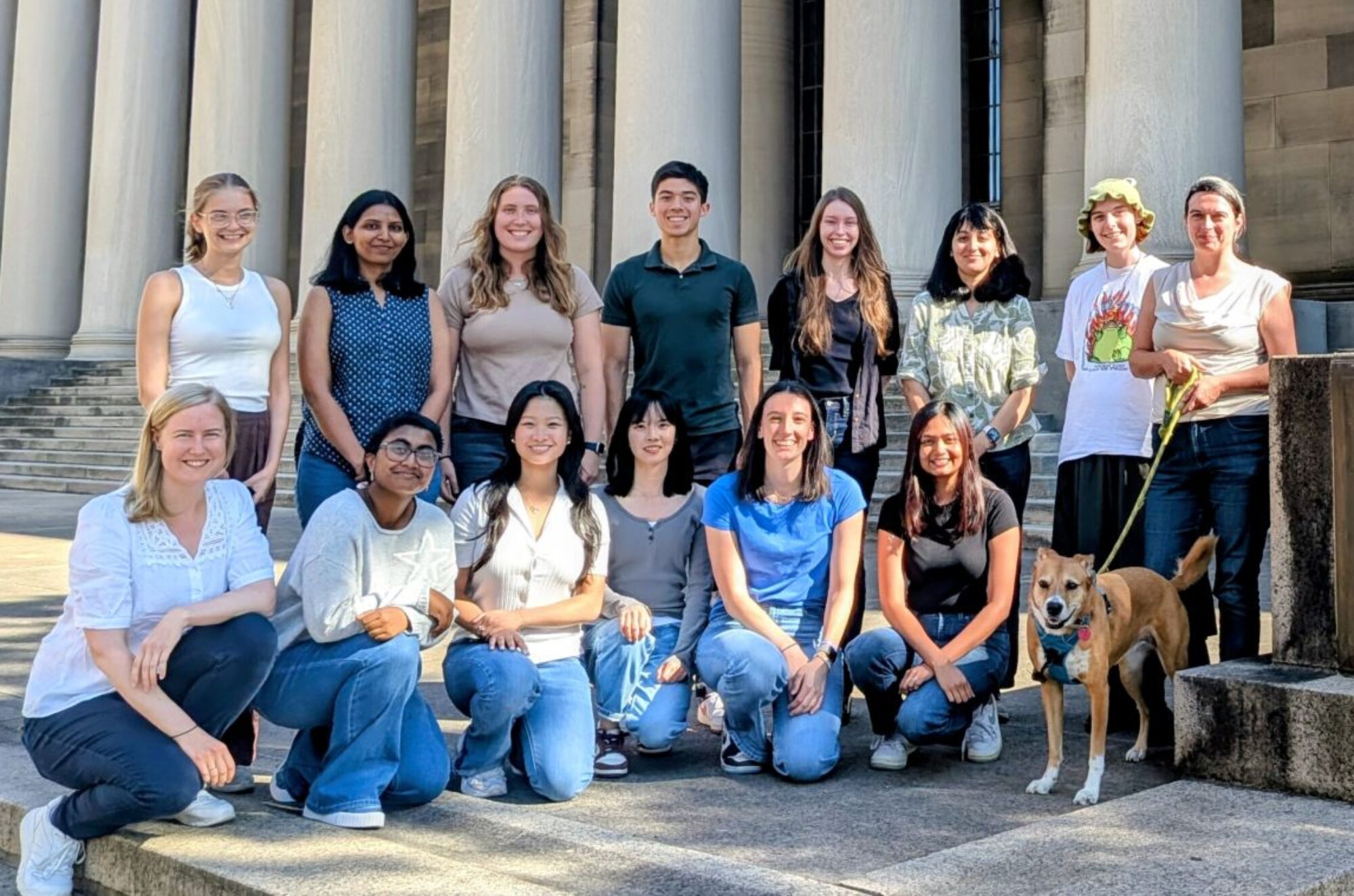
This poster came from Sammy Kata’s website. Visit to make your own!
Ph.D. Students
Elizabeth Smith
 I am a first year Ph.D student at Carnegie Mellon University in the Department of Chemistry as well as a Carnegie Mellon Rales Fellow. As an undergraduate at Allegheny College, I majored in chemistry and minored in studio art. I am interested in the transformations and exposure pathways of organic contaminants and per/polyfluoroalkyl substances (PFAS’s) in the environment — particularly in water systems. Outside of the lab I enjoy being on my paddleboard, reading, or babbling about art.
I am a first year Ph.D student at Carnegie Mellon University in the Department of Chemistry as well as a Carnegie Mellon Rales Fellow. As an undergraduate at Allegheny College, I majored in chemistry and minored in studio art. I am interested in the transformations and exposure pathways of organic contaminants and per/polyfluoroalkyl substances (PFAS’s) in the environment — particularly in water systems. Outside of the lab I enjoy being on my paddleboard, reading, or babbling about art.
Ciara O’Connor
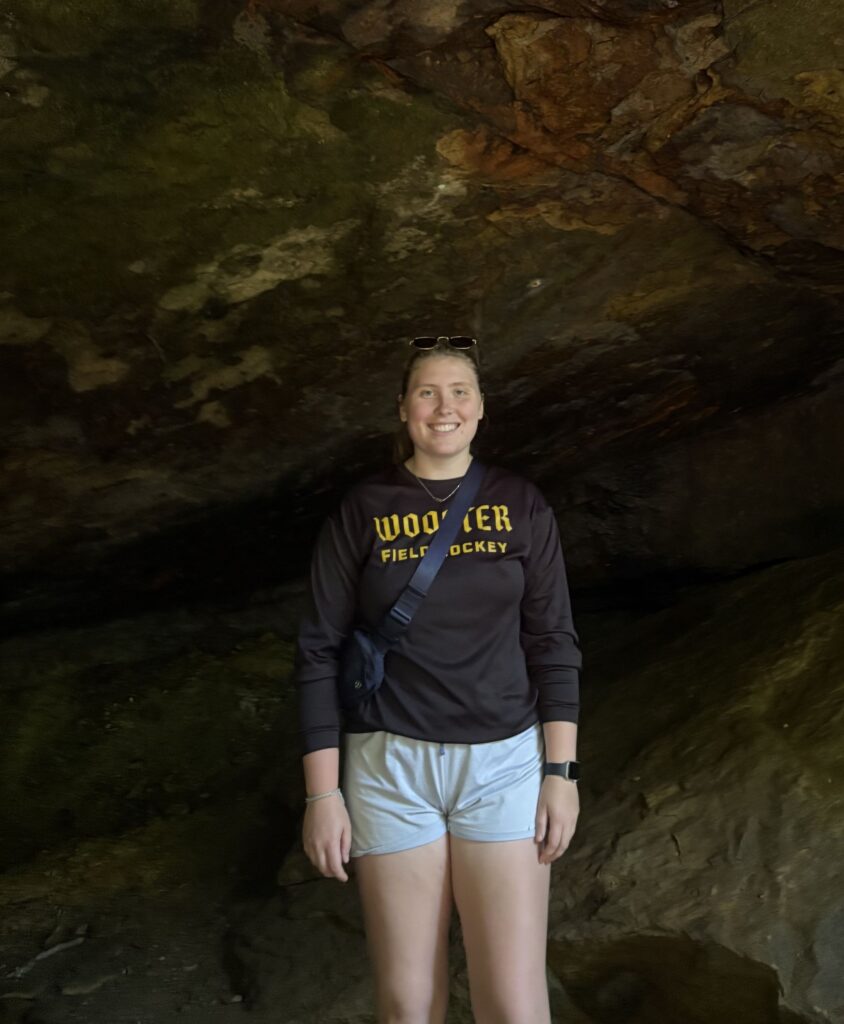 I am currently a second year PhD student in the Chemistry Department at Carnegie Mellon University. In my undergraduate research, I focused on establishing a method to determine the pKa of per- and polyfluoroalkyl substances (PFAS) which began my interest in these contaminants. My current research involves measuring neutral volatile PFAS in personal care products and understanding the dermal exposure in people. Outside of the lab, I enjoy hiking, trying new restaurants, reading, golfing, and volleyball!
I am currently a second year PhD student in the Chemistry Department at Carnegie Mellon University. In my undergraduate research, I focused on establishing a method to determine the pKa of per- and polyfluoroalkyl substances (PFAS) which began my interest in these contaminants. My current research involves measuring neutral volatile PFAS in personal care products and understanding the dermal exposure in people. Outside of the lab, I enjoy hiking, trying new restaurants, reading, golfing, and volleyball!
Hanna Wiandt
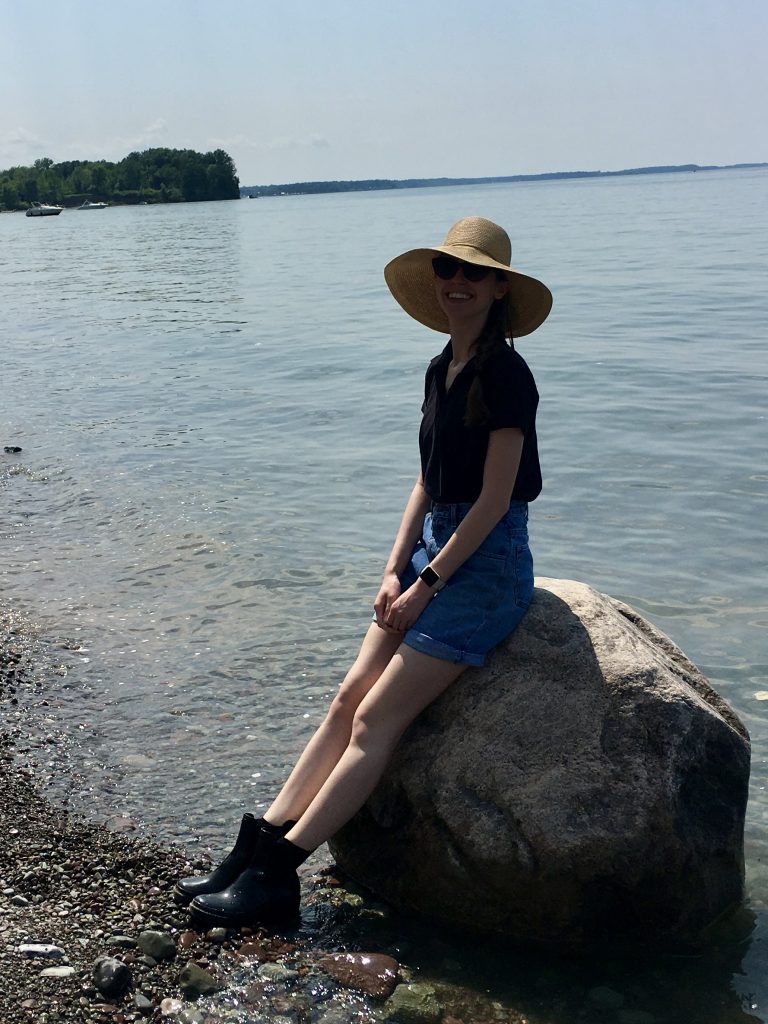 I am a new Ph.D. student in the Department of Chemistry at Carnegie Mellon University. As an undergraduate, I studied both chemistry and chemical biology, and my research focused on the effects of the environment on archaeological samples. I’m looking forward to transferring those lab skills to studying the effects of per/polyfluoroalkyl substances (PFAS) on the environment and biological systems. When I’m not in the lab, I enjoy horseback riding, reading, and hiking!
I am a new Ph.D. student in the Department of Chemistry at Carnegie Mellon University. As an undergraduate, I studied both chemistry and chemical biology, and my research focused on the effects of the environment on archaeological samples. I’m looking forward to transferring those lab skills to studying the effects of per/polyfluoroalkyl substances (PFAS) on the environment and biological systems. When I’m not in the lab, I enjoy horseback riding, reading, and hiking!
Natalie Colaizzo
 I am currently a first year Ph.D. student in the Chemistry Department at Carnegie Mellon University. I have a background in Environmental Science (Siena College, B.S.) and am interested in the fate of organic contaminants in the environment. I am particularly interested in the bioaccumulation of per/polyfluoroalkyl substances (PFASs) throughout aquatic food webs and aquatic ecosystems. Outside of the lab, I enjoy reading, embroidery and spending time outside!
I am currently a first year Ph.D. student in the Chemistry Department at Carnegie Mellon University. I have a background in Environmental Science (Siena College, B.S.) and am interested in the fate of organic contaminants in the environment. I am particularly interested in the bioaccumulation of per/polyfluoroalkyl substances (PFASs) throughout aquatic food webs and aquatic ecosystems. Outside of the lab, I enjoy reading, embroidery and spending time outside!
Kiran Ali
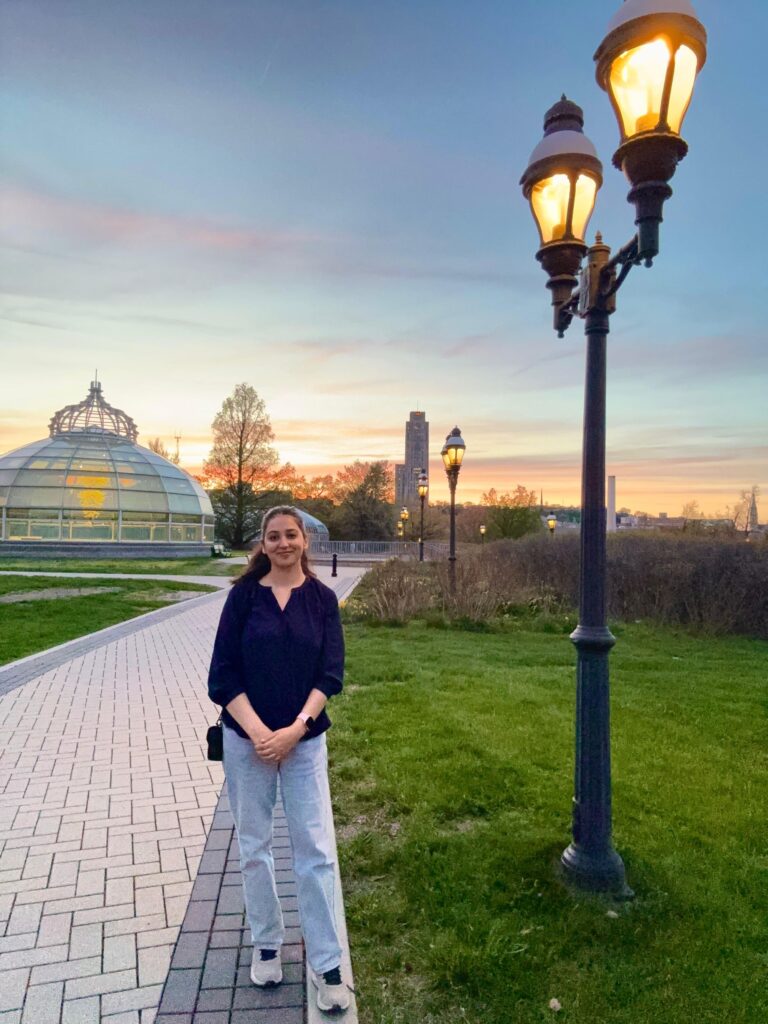 I’m a third-year PhD student in the Department of Chemistry at Carnegie Mellon University, specializing in Environmental Analytical Chemistry. My current research focuses on developing LC-HRMS methods to analyze PFAS in human urine samples, and I am particularly interested in learning more about how these compounds move through the human body.
I’m a third-year PhD student in the Department of Chemistry at Carnegie Mellon University, specializing in Environmental Analytical Chemistry. My current research focuses on developing LC-HRMS methods to analyze PFAS in human urine samples, and I am particularly interested in learning more about how these compounds move through the human body.
I’m originally from Gilgit-Baltistan, Pakistan, a mountainous region in the Karakoram known for its breathtaking landscapes and some of the world’s highest peaks. I’m passionate about exploring new places and learning about different cultures. Outside the lab, I enjoy hiking, photography, and sketching. When indoors, you’ll often find me watching my favorite Studio Ghibli movies, playing Age of Empires on my laptop, and trying out different makeup looks for fun.
Leenia Mukhopadhyay
 I am an environmental analytical chemist from India and currently a fourth-year Ph.D. student. My research focuses on understanding the bioavailability and bioaccumulation of per- and polyfluoroalkyl substances (PFAS) in aquatic environments. To gain a comprehensive understanding of PFAS behavior, I employ a two-pronged approach: (1) analyzing fish bioarchives from the Hudson River to investigate temporal trends in PFAS contamination, and (2) applying ex-situ passive sampling techniques to directly measure the chemical activities of sediment-associated PFASs. I am interested in pursuing a career in environmental risk assessment and policy decisions, and hope to contribute to future efforts through my research. Outside the lab, I enjoy playing badminton and volleyball, reading, hiking, and spending time with my dog, Rocket!
I am an environmental analytical chemist from India and currently a fourth-year Ph.D. student. My research focuses on understanding the bioavailability and bioaccumulation of per- and polyfluoroalkyl substances (PFAS) in aquatic environments. To gain a comprehensive understanding of PFAS behavior, I employ a two-pronged approach: (1) analyzing fish bioarchives from the Hudson River to investigate temporal trends in PFAS contamination, and (2) applying ex-situ passive sampling techniques to directly measure the chemical activities of sediment-associated PFASs. I am interested in pursuing a career in environmental risk assessment and policy decisions, and hope to contribute to future efforts through my research. Outside the lab, I enjoy playing badminton and volleyball, reading, hiking, and spending time with my dog, Rocket!
Undergraduate Researchers
Robert Pures
 I am a senior undergraduate student pursuing a B.S. in Chemistry with a Biological Track. I previously collaborated with Dr. Raj Mukhopadhyay to develop novel bio-adsorbents for the remediation of PFAS in plant and soil. The largest project involved growing and maintaining over 30 lettuce samples grown in PFAS-spiked soil to assess the performance of engineered clay adsorbents. I am currently working towards an honors thesis focusing on developing plant proxies to assess PFAS exposure. Outside of the lab, I enjoy playing lacrosse and am the president of the Carnegie Mellon Men’s Lacrosse club.
I am a senior undergraduate student pursuing a B.S. in Chemistry with a Biological Track. I previously collaborated with Dr. Raj Mukhopadhyay to develop novel bio-adsorbents for the remediation of PFAS in plant and soil. The largest project involved growing and maintaining over 30 lettuce samples grown in PFAS-spiked soil to assess the performance of engineered clay adsorbents. I am currently working towards an honors thesis focusing on developing plant proxies to assess PFAS exposure. Outside of the lab, I enjoy playing lacrosse and am the president of the Carnegie Mellon Men’s Lacrosse club.
Samhita Gudapati
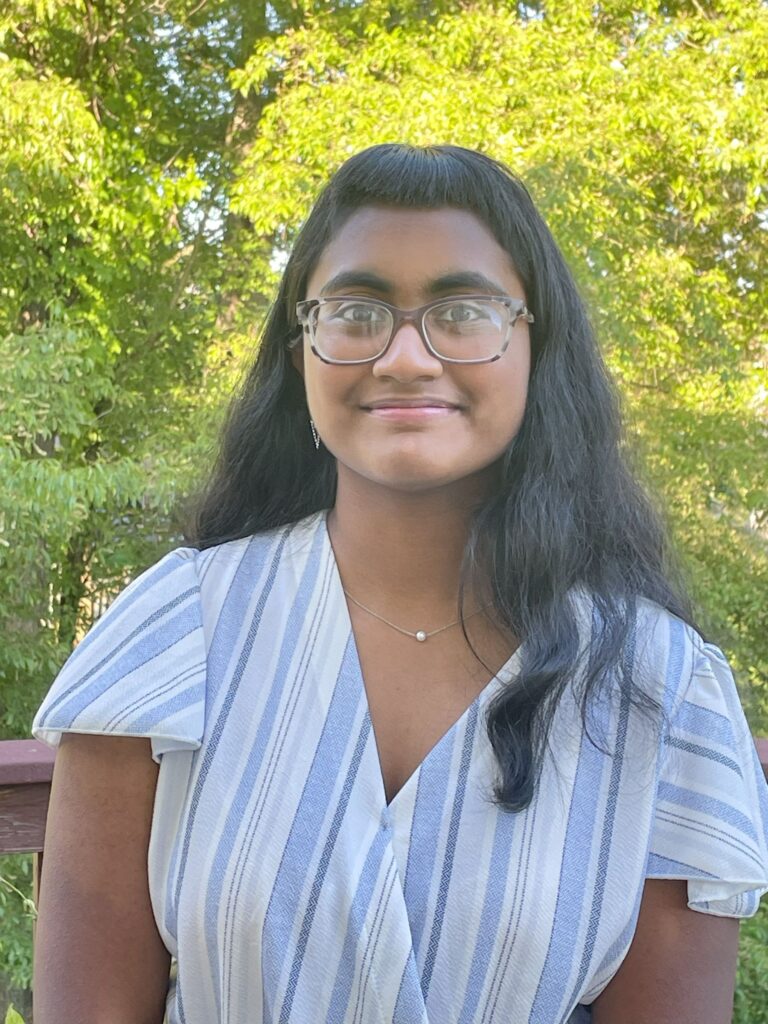 I am a third-year undergraduate double-majoring in Environmental Engineering and Chemistry at Carnegie Mellon University. I am currently studying bio uptake of PFAS and working with Leenia and Natalie on the SERDP project in the lab. I am interested in how exposure to environmental contaminants such as PFAS affects environmental and public health. Outside of the lab, I love to bake, resin cast, canoe, and run!
I am a third-year undergraduate double-majoring in Environmental Engineering and Chemistry at Carnegie Mellon University. I am currently studying bio uptake of PFAS and working with Leenia and Natalie on the SERDP project in the lab. I am interested in how exposure to environmental contaminants such as PFAS affects environmental and public health. Outside of the lab, I love to bake, resin cast, canoe, and run!
Ever Lengyel Karlson
 I am currently a sophomore chemistry major working under Yanan in the lab, focusing on the bioaccumulation of PFAS in the tissues of marine organisms. Outside of academics, I enjoy crocheting, singing, drawing, and going down Wikipedia rabbit holes about frogs.
I am currently a sophomore chemistry major working under Yanan in the lab, focusing on the bioaccumulation of PFAS in the tissues of marine organisms. Outside of academics, I enjoy crocheting, singing, drawing, and going down Wikipedia rabbit holes about frogs.
Katie Hon
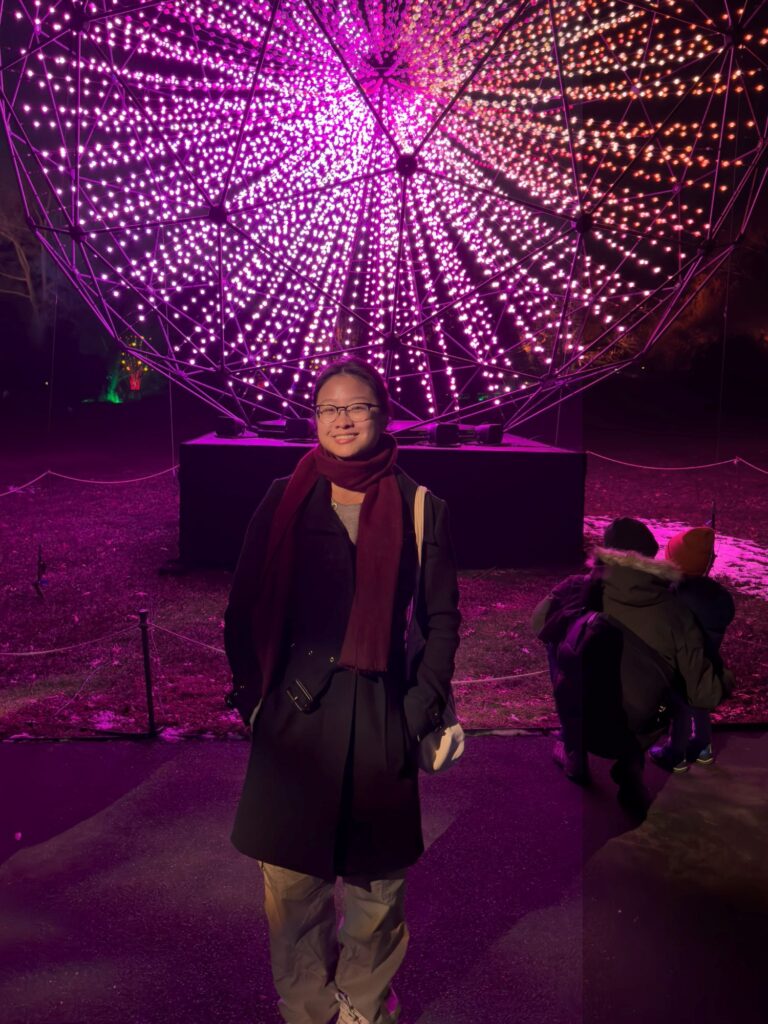 I am a senior undergraduate pursuing a B.S in Chemistry with a minor in Biomedical Engineering. I have been working with Dilani throughout my college career to develop methods utilizing high-resolution mass spectrometry to quantify PFAS in biological matrices. I am particularly interested in understanding the mechanisms behind PFAS bioaccumulation in human blood, and how this may affect human health. Some of my other hobbies include cooking, swimming, and taking many photos of my cat!
I am a senior undergraduate pursuing a B.S in Chemistry with a minor in Biomedical Engineering. I have been working with Dilani throughout my college career to develop methods utilizing high-resolution mass spectrometry to quantify PFAS in biological matrices. I am particularly interested in understanding the mechanisms behind PFAS bioaccumulation in human blood, and how this may affect human health. Some of my other hobbies include cooking, swimming, and taking many photos of my cat!
Visiting Scholars
Ingvild Nygard – Fulbright Scholar (Norwegian University of Life Sciences)
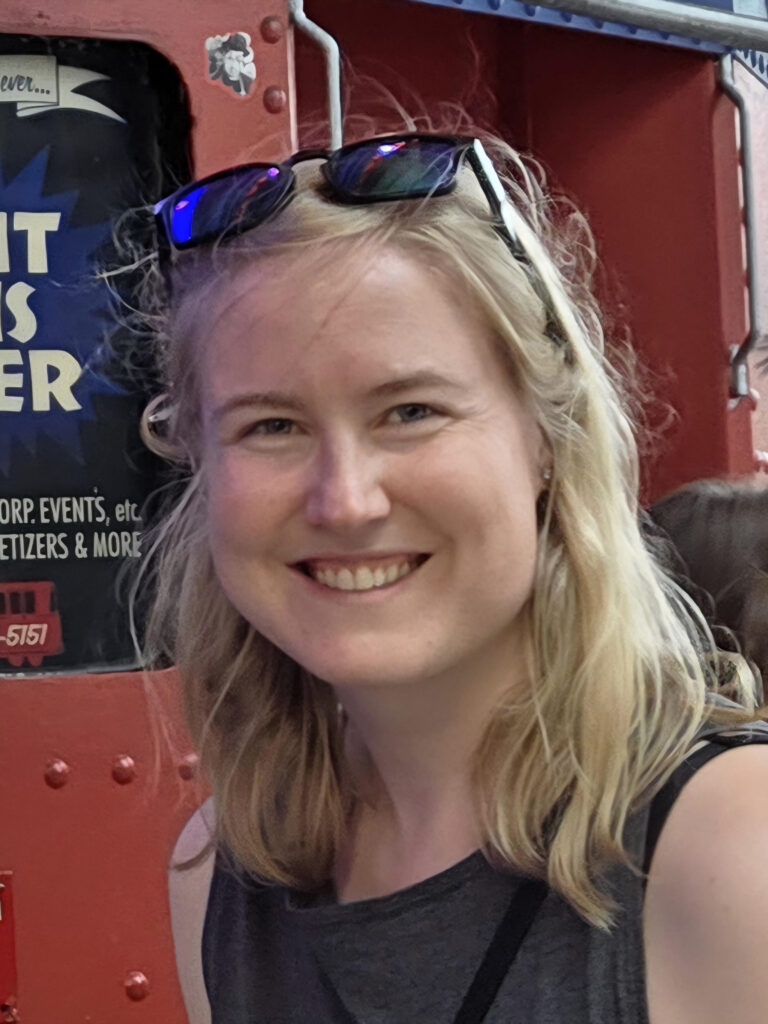 I am a visiting researcher from the Norwegian University of Life Sciences, supported by a Fulbright scholarship. My PhD focuses on the treatment of water contaminated with per- and polyfluoroalkyl substances (PFAS), with particular emphasis on ultrashort- and short‑chain compounds. For my master’s thesis in 2017, I studied the behavior of perfluorooctanesulfonic acid (PFOS) in the groundwater fluctuation zone. Before returning to academia, I worked for several years as a hydrogeologist and environmental consultant. Through my research, I aim to advance understanding of PFAS management and help build a safer and cleaner environment.
I am a visiting researcher from the Norwegian University of Life Sciences, supported by a Fulbright scholarship. My PhD focuses on the treatment of water contaminated with per- and polyfluoroalkyl substances (PFAS), with particular emphasis on ultrashort- and short‑chain compounds. For my master’s thesis in 2017, I studied the behavior of perfluorooctanesulfonic acid (PFOS) in the groundwater fluctuation zone. Before returning to academia, I worked for several years as a hydrogeologist and environmental consultant. Through my research, I aim to advance understanding of PFAS management and help build a safer and cleaner environment.
Outside the lab, I enjoy time with my toddler Olav, as well as good food, beach volleyball, and swing dancing.
Postdoctoral Scientists
Dr. Yanan Chen
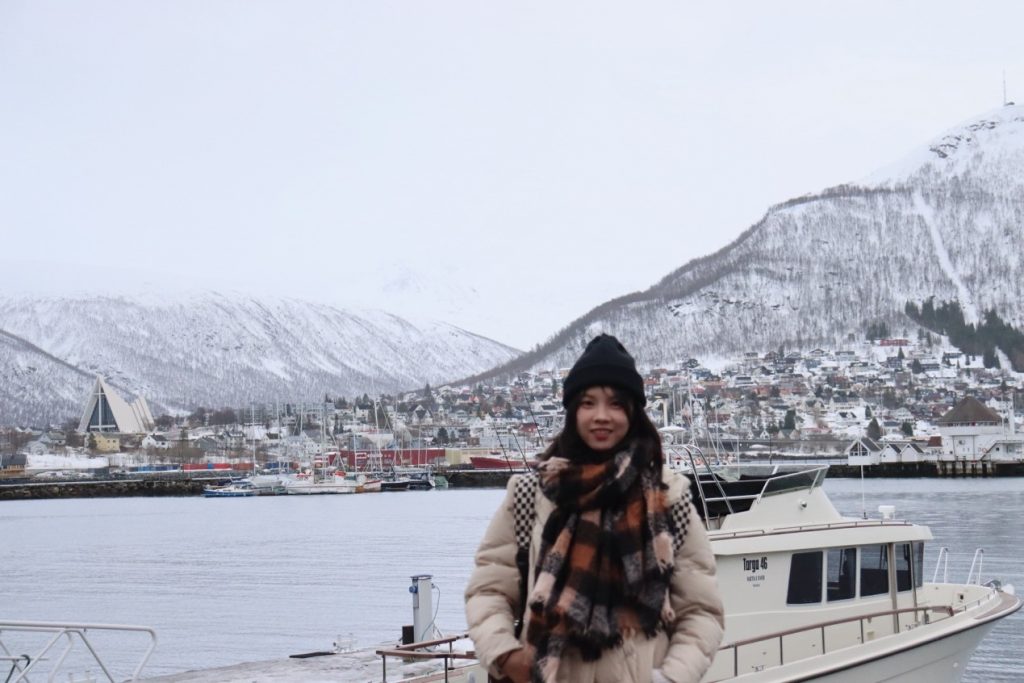 Yanan received her M.S. and Ph.D. degrees in Environmental Engineering from Fudan University, China. She also completed an 18-month joint-Ph.D. training program at Aalborg University, Denmark. Her research focuses on the environmental fate, risks, and degradation mechanisms of emerging environmental micropollutants, including DBPs, PPCPs, and microplastics.
Yanan received her M.S. and Ph.D. degrees in Environmental Engineering from Fudan University, China. She also completed an 18-month joint-Ph.D. training program at Aalborg University, Denmark. Her research focuses on the environmental fate, risks, and degradation mechanisms of emerging environmental micropollutants, including DBPs, PPCPs, and microplastics.
Yanan is skilled in analyzing trace organic residues in environmental matrices, with particular expertise in identifying and quantifying microplastics in various environmental samples such as water, wastewater, soil, and sediments. Currently, her postdoctoral research focuses on the exposure routes, bioaccumulation and toxicity of PFAS in marine organisms. Outside the lab, she enjoys traveling and reading.
Dr. Dilani Perera
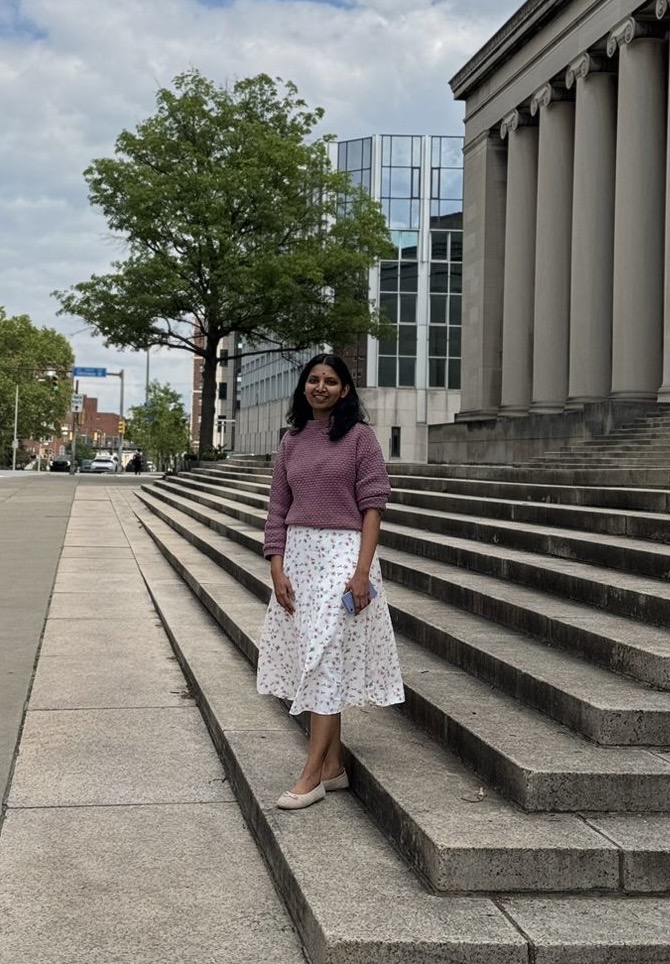 Dilani received her B.S. degree (with honors) in Chemistry from the University of Colombo, Sri Lanka, and her M.S. and Ph.D. degrees in Chemistry from the Florida International University. She joined the McDonough lab in 2023 as a postdoctoral scientist. Dilani’s previous work focused on developing a novel method to remediate per- and polyfluoroalkyl substances (PFASs) in biological systems. Her current work at the McDonough lab focuses on developing high-resolution mass spectrometry method for targeted and non-targeted screening of PFASs in biological matrices including. Outside the lab, Dilani spends time with her two kids Sahansa and Vidvaan.
Dilani received her B.S. degree (with honors) in Chemistry from the University of Colombo, Sri Lanka, and her M.S. and Ph.D. degrees in Chemistry from the Florida International University. She joined the McDonough lab in 2023 as a postdoctoral scientist. Dilani’s previous work focused on developing a novel method to remediate per- and polyfluoroalkyl substances (PFASs) in biological systems. Her current work at the McDonough lab focuses on developing high-resolution mass spectrometry method for targeted and non-targeted screening of PFASs in biological matrices including. Outside the lab, Dilani spends time with her two kids Sahansa and Vidvaan.
Group Lead
Dr. Carrie McDonough (she/they) – Associate Professor of Chemistry
 I am a chemical oceanographer and analytical chemist working at the intersection of environmental analytical chemistry, environmental health engineering, and toxicology. I received my B.Sc. in Chemistry from the Massachusetts Institute of Technology (MIT) in 2008, and my Ph.D. in Chemical Oceanography from the University of Rhode Island Graduate School of Oceanography (URI GSO) in 2017. I completed a postdoctoral fellowship at Colorado School of Mines developing methods for nontarget analysis of per/polyfluoroalkyl substances (PFASs) in biological samples. I use cutting-edge environmental monitoring and analytical chemistry techniques to study the fate, transport, and biological effects of anthropogenic organic contaminants in aquatic environments. Broadly, I am interested in how the molecular structure and chemical properties of pollutants influence their fate in the environment, as well as their biological effects in aquatic organisms and humans. My overarching objective is to understand human and ecosystem health risk associated with organic contaminants in water and to identify particular compounds of concern that should be prioritized for remediation and toxicological investigation. When I’m not working, I am usually brewing beer and hanging out with my dogs, Millie (pictured here) and Pickles.
I am a chemical oceanographer and analytical chemist working at the intersection of environmental analytical chemistry, environmental health engineering, and toxicology. I received my B.Sc. in Chemistry from the Massachusetts Institute of Technology (MIT) in 2008, and my Ph.D. in Chemical Oceanography from the University of Rhode Island Graduate School of Oceanography (URI GSO) in 2017. I completed a postdoctoral fellowship at Colorado School of Mines developing methods for nontarget analysis of per/polyfluoroalkyl substances (PFASs) in biological samples. I use cutting-edge environmental monitoring and analytical chemistry techniques to study the fate, transport, and biological effects of anthropogenic organic contaminants in aquatic environments. Broadly, I am interested in how the molecular structure and chemical properties of pollutants influence their fate in the environment, as well as their biological effects in aquatic organisms and humans. My overarching objective is to understand human and ecosystem health risk associated with organic contaminants in water and to identify particular compounds of concern that should be prioritized for remediation and toxicological investigation. When I’m not working, I am usually brewing beer and hanging out with my dogs, Millie (pictured here) and Pickles.
Alumni
Raj Mukhopadhyay, Fulbright-Nehru Postdoctoral Fellow 2023-2025
David A. Dukes, Ph.D. 2024 (Current Position: Postdoctoral research fellow, Emory University Rollins School of Public Health, Atlanta, GA): Exploring the toxicokinetics of perfluoroalkyl acids and their precursors from an electrochemically fluorinated aqueous film-forming foam
Rachel Smolinski, Ph.D. 2024 (Current Position: Managing Technical Consultant & Scientist, ERM): Trace organic contaminants in residential watewater and their fate in onsite wastewater treatment systems: A nontarget analysis approach to micropollutant identification
Jennifer Marciano, Thesis Master’s 2023 (Current Position: Chemist, Suffolk County Department of Health Services): Per/polyfluoroalkyl substances in northern Atlantic white shark (Carcharodon carcharias) plasma and muscle
Noor Hamdan, Project Master’s 2022 (Current Position: Ph.D. Student, Johns Hopkins University): Bioaccumulation of sediment-associated per/polyfluoroalkyl substances (PFASs) in marine polychaetes
Undergraduate Researcher Alumni
Morgan Van Der Linde, B.S. Chemistry, 2025
Alexis Zhao, Middlebury College (REU Summer 2024)
Natalie Colaizzo, B.S. Env. Sci., Siena College, Minor, Chemistry, (REU Summer 2023)
Fangyi Li, B.S. Chemical Engineering, Minor, Biological Sciences, 2024
